Microsoft recently announced that they brought Ubuntu userspace to Windows, and that this features will be officially released in Windows 10’s Anniversary Update and called Windows Subsystem for Linux. But people part of the company’s insider program can already try the beta version of “Bash on Windows”, and Phoronix ran some benchmarks in bash in Windows 10, and repeated the tests in Ubuntu 16.04, Ubuntu 14.04, and Clear Linux. The test machine was based on an Intel Xeon E3-1280 v5 Skylake CPUwith 16GB of RAM and 120GB Samsung 850 EVO SSD.
Many of the results show Windows Subsystem for Linux (I’ll just call it Windows 10 in the rest of the post) just performing a little slower than on the Linux distributions, but there are also some outliers, which I’m going to cover here.
The most surprising results is when Windows 10 clearly outperforms Linux at its own game which should not be happening.
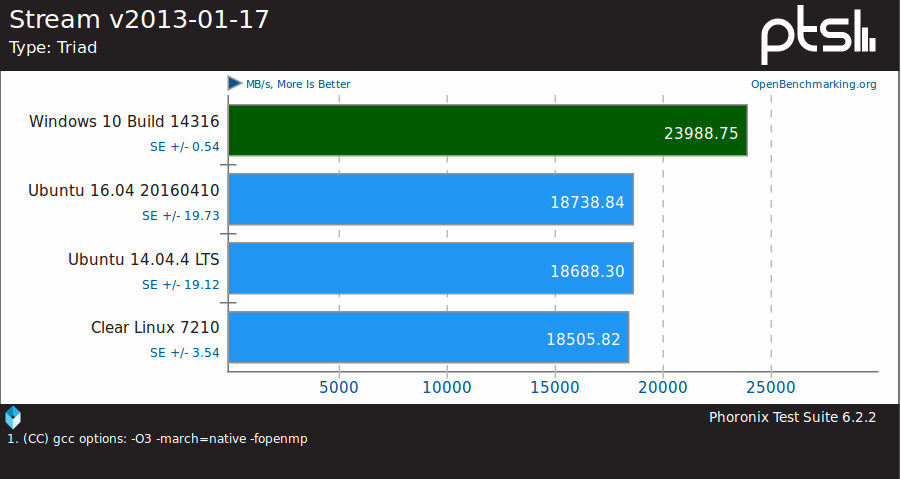
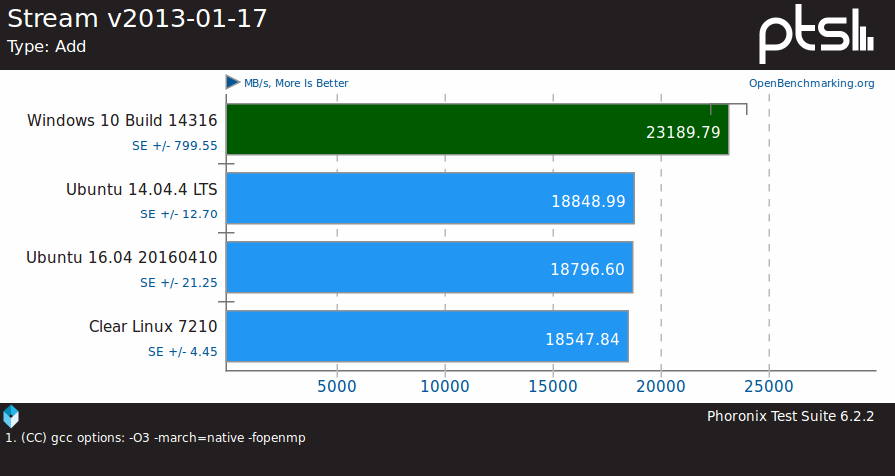
That’s the case for Stream 1.2 triad and add benchmarks. Stream is supposed to benchmark the system memory (RAM) performance. The copy operation from the same benchmark is still faster in Linux however, except in Ubuntu 14.04.
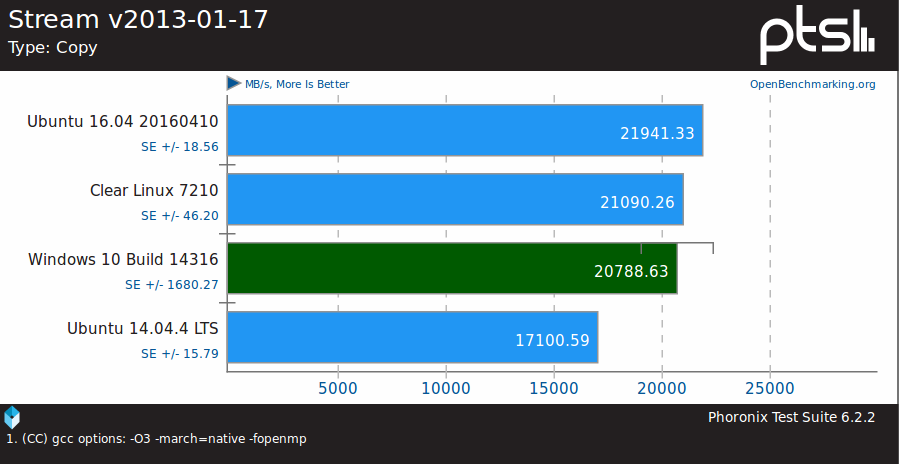
The table below summarize the operation for the 4 stream tests:
|
1 2 3 4 5 6 7 8 |
------------------------------------------------------------------ name kernel bytes/iter FLOPS/iter ------------------------------------------------------------------ COPY: a(i) = b(i) 16 0 SCALE: a(i) = q*b(i) 16 1 SUM/ADD: a(i) = b(i) + c(i) 24 1 TRIAD: a(i) = b(i) + q*c(i) 24 2 ------------------------------------------------------------------ |
I don’t have any explanation for the issue, but maybe some people can provide some clues in the comments.
There were also benchmarks where bash on Windows 10 is much slower, likely due to the use of NTFS instead of EXT-4.
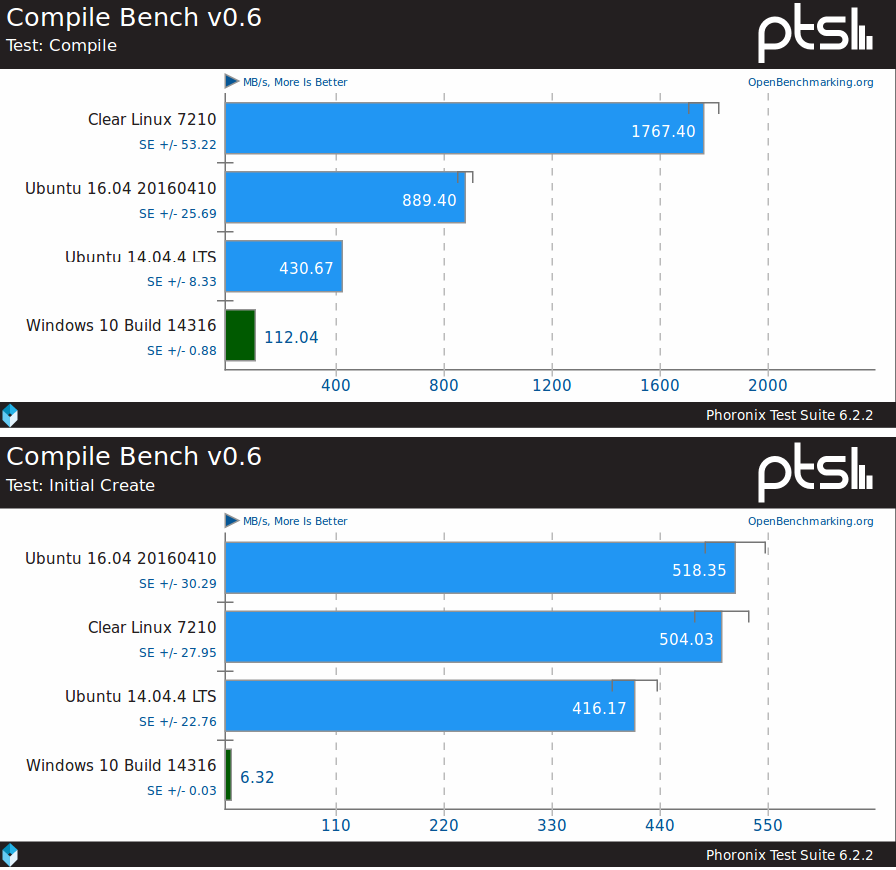
The Compile bench “tries to age a filesystem by simulating some of the disk IO common in creating, compiling, patching, stating and reading kernel trees. It indirectly measures how well file systems can maintain directory locality as the disk fills up and directories age. This current test is setup to use the makej mode with 10 initial directories”. Since Ubuntu bash on Windows is designed for developers this may actually matter. The poor performance is confirmed with Timed PHP compilation benchmark.
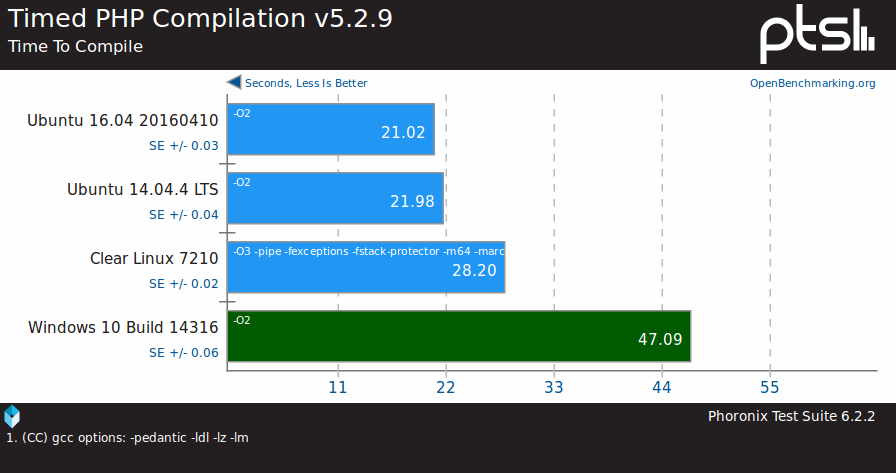
So it may pay off to try some other file systems if possible in Windows 10.
SciMarks v2.0 Fast Fourier Transform is another benchmark that’s quite faster in bash in Windows 10.
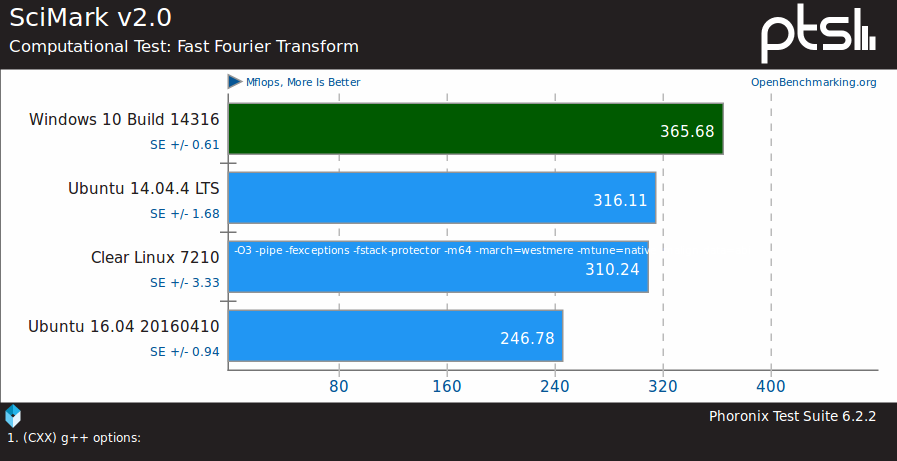
That one is also odd, so there must be some operations that the Windows kernel does faster than the Linux kernel, even after the overhead of converting Linux calls to Windows calls.
Windows 10 got back to struggling with Redis open-source data structure server benchmark that’s likely reliant on storage I/Os.
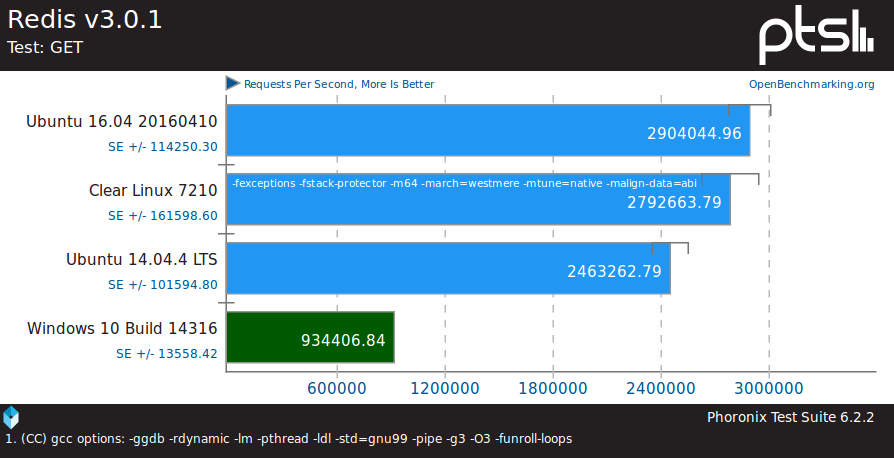
The other benchmark results where more or less in line with expectations, although there were some regressions between Ubuntu 16.04 and Ubuntu 14.04.

Jean-Luc started CNX Software in 2010 as a part-time endeavor, before quitting his job as a software engineering manager, and starting to write daily news, and reviews full time later in 2011.
Support CNX Software! Donate via cryptocurrencies, become a Patron on Patreon, or purchase goods on Amazon or Aliexpress




